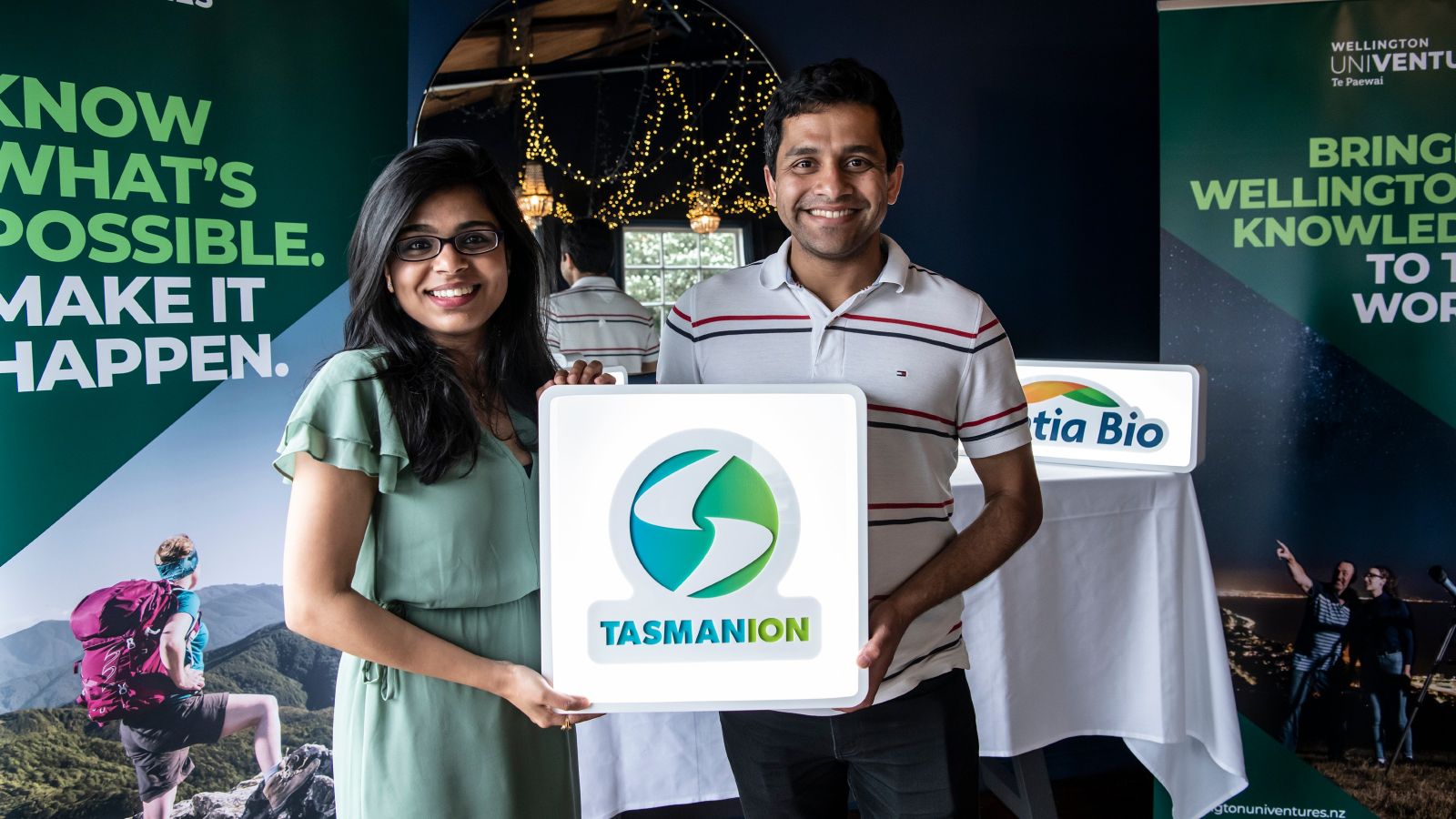Battery-powered success
Te Herenga Waka—Victoria University of Wellington PhD graduate Dr Shalini Divya has her sights on developing new battery technology.
There’s no question—batteries make our lives easier. They help us power our mobile phones, medical devices, entertainment technology, and more.
However, current and universally adopted lithium-ion battery technology has several problems. The lithium used to create these batteries is not an abundant element and the continued mining of it is unsustainable in the long term.
Dr Divya, who graduated this month with a PhD in Chemistry, created a new material for non-aqueous aluminium-ion batteries. Not only is aluminium a much more abundant element and a more sustainable long-term option for batteries, but the material Dr Divya and her supervisor Professor Thomas Nann created also outperforms most of the energy storage materials to date.
“I’m incredibly passionate about climate change and energy storage,” Dr Divya says. “I’d also worked on different energy storage devices during my Master’s, so I was excited to continue work in that area for my PhD.”
The University’s strong international reputation for research was another reason Dr Divya looked forward to her PhD, she says. She says studying at the University gave her a number of exciting opportunities, like talking with everyone from James Shaw, Minister for Climate Change, to international visitors from the German Federal Ministry of Education Research during laboratory tours, as well as supervising international student interns, an experience she says helped build her confidence and her professional relationships.
Now that she has graduated, Dr Divya’s next goal is to grow her company, TasmanION, with supporting involvement and guidance from Wellington UniVentures, the University’s commercialisation office. TasmanION was created to commercialise the technology Dr Divya discovered during her PhD and turn it into a commercial product.
“The day I realised that batteries I made in my laboratory could be commercialised was unforgettable,” Dr Divya says.
“When the sun doesn’t shine, or the wind doesn’t blow, we need batteries to store renewable energy reserves to help make our energy use more sustainable. Sustainable batteries to support renewable energy will also help secure the energy needs of those around the world, which is a huge step in lifting people out of poverty.”
“New Zealand will also benefit economically from holding the intellectual property for this new invention.”
But launching a start-up has its challenges.
“Creating a start-up required a whole new set of skills than the ones I gained during my PhD,” Dr Divya says. “I spent a lot of time talking to battery manufacturers worldwide and working to understand all the ins and outs of commercialisation.”
Dr Divya is working closely with the University’s commercialisation office, Wellington UniVentures, to get TasmanION off the ground. They are helping Dr Divya with the commercialisation process and also helped her with the professional development she needed to lead a company, including nominating her for KiwiNet’s Emerging Innovator award. With Wellington UniVentures’ help she successfully won and received $20,000 in project funding to engage with industry, build a proof-of-concept of her disruptive new invention, and explore markets for that product or service.
“I never imagined that I would become a businesswoman! But nothing, in my opinion, beats the idea of doing something in the lab and then sharing the new technology’s benefits with the whole world.”
Dr Divya says her biggest learning from the past few years is that patience is crucial when progressing through a PhD journey and that having a supervisor who keeps you motivated is key to success. As well as working with Professor Nann, Dr Divya was co-supervised by Professor Jim Johnston, who provided her with the continual guidance and inspiration she needed during her PhD, she says.
“A PhD is a constant work in progress, so you need to keep moving and keep your spirits up. It’s essential to be surrounded by people that encourage you no matter what, and I was lucky to have them by my side.”
She also advises current and future PhD students to never be afraid to ask questions and never compare themselves to others, because each PhD journey is different.
So what’s next for Dr Divya? Short-term, she wants to be involved in every aspect of launching and growing TasmanION, from getting investments to creating the company website, eventually hoping to step into the role of CEO. Long-term, she has an ambitious goal for TasmanION.
“I want to see TasmanION batteries in use in space exploration technology,” she says. “Sending our batteries into space would be a dream come true!”

